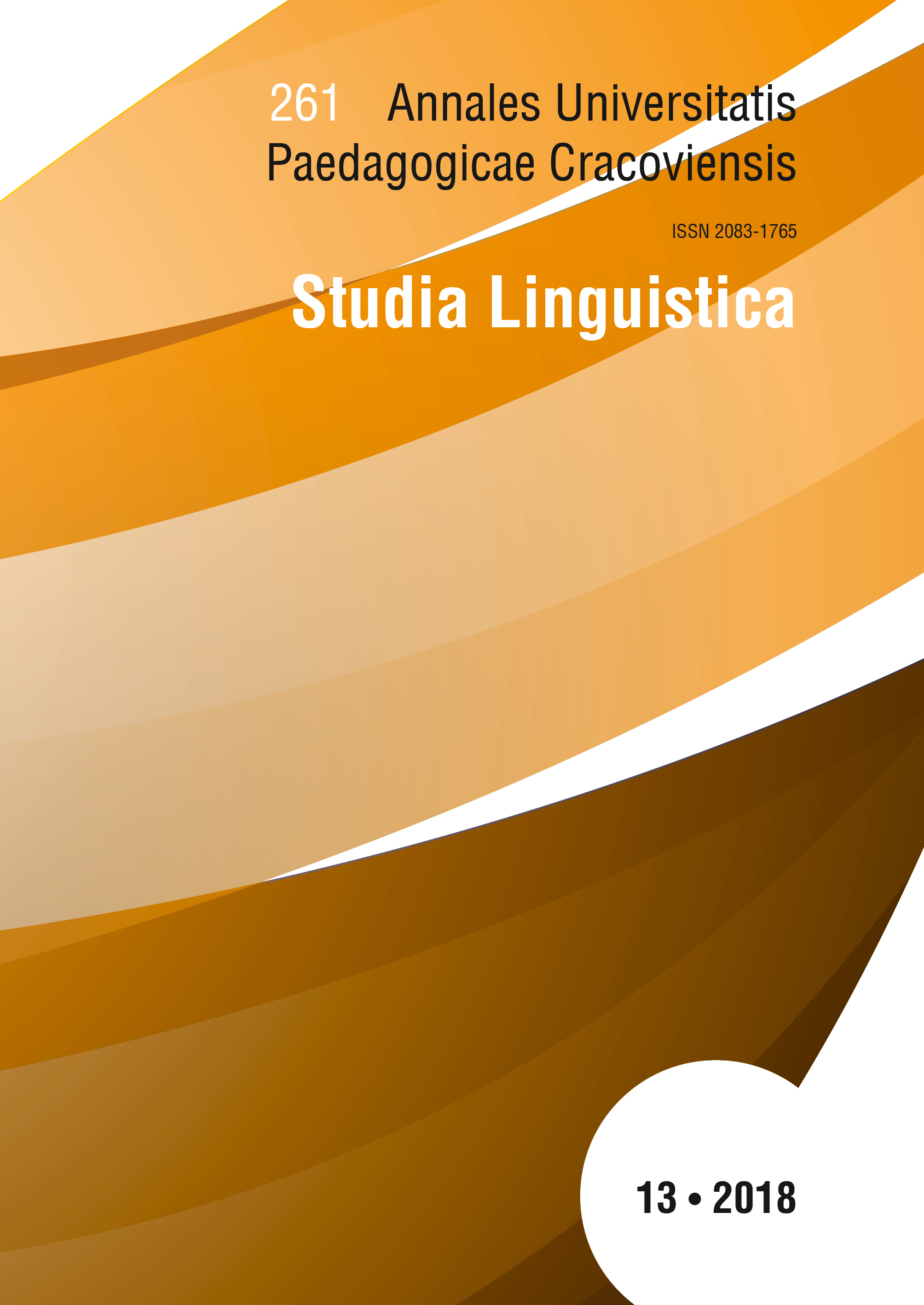About regionalisms tytka and tyta
Main Article Content
Abstract
Regional words tytka and tyta persist among the lexical separateness in several regions of Poland. The noun tytka is often used in the traditional meaning ‘the paper bag’, but also in the extended scope ‘the packaging of other material’. The stabilization of both lexemes in regional varieties of Polish is reinforced by well-known customs (Silesian tyta /tytka for first graders) as well as new social campaigns such as “Charity tytka”.
Downloads
Article Details
Author, submitting a text to the editorial board of the journal “Annales Universitatis Paedagogicae Cracoviensis. Studia Linguistica", certifies that the content of the article has not been published so far and that the work does not violate in any way the copyright or related rights of other person, as well as other rights of third parties, and that no one's rights to the work (or any part thereof) have been missed. After signing the contract, the property rights to the published materials are transferred to the University of the National Education Commission, Krakow.
“Annales Universitatis Paedagogicae Cracoviensis. Studia Linguistica” is an open access journal, and all its content is made available free of charge to users and institutions under the Creative Commons CC-BY-NC-ND 4.0 license (attribution, non-commercial use, no derivative works). Under this license, the authors agree that their work may be lawfully reused for any purpose, except for commercial purposes, without the prior consent of the author or publisher. Everyone can read, download, copy, print, distribute and process these works, provided that the author's marking and the original publication place are correct. Published texts may not be used to create derivative works (e.g. to translate and publish in another language without the consent of the publisher). This is in line with the BOAI (Budapest Open Access Initiative) definition. "Studia Linguistica" does not charge for submitting or processing articles.
References
Bieńkowska D., Cybulski M., Umińska-Tytoń E., 2007, Słownik dwudziestowiecznej Łodzi.
Google Scholar
Konteksty historyczne, społeczne, kulturowe, Łódź.
Google Scholar
Biliński J., 1922, Błędy językowe, Katowice–Poznań–Tuchola/Pomorze.
Google Scholar
Danysz A., 1914, Odrębności słownikarskie kulturalnego języka polskiego w Wielkopolsce w stosunku do kulturalnego języka w Galicyi, „Język Polski” 1914, z. 8–10, s. 243–261.
Google Scholar
Dyszak A.S., 2015, Gwara miejska bydgoszczan, Bydgoszcz.
Google Scholar
Kluge F., 1989, Etymologisches Wörterbuch der deutschen Sprache, Berlin–New York.
Google Scholar
Piotrowicz A., 1991, Wielkopolskie słownictwo regionalne w prozie współczesnych pisarzy poznańskich. (Rzeczowniki), Poznań.
Google Scholar
Piotrowicz A., Witaszek-Samborska M., 2016, Gwara miejska Poznania w przestrzeni publicznej jako narzędzie wzmacniania poczucia lokalnej tożsamości, „Poradnik Językowy”, z. 10, s. 20–32.
Google Scholar
Piotrowicz A., Witaszek-Samborska M., 2018, Słownictwo gwary miejskiej Poznania w ujęciu tematycznym, Poznań.
Google Scholar
Piotrowska-Wojaczyk A., 2011, Regionalizmy leksykalne w słownikach doby nowopolskiej, Poznań.
Google Scholar
Pomin P., 2018, Tytka charytatywna, „Głos Caritas”, nr 11, s. 4.
Google Scholar
Pyla G., 2006, Zwyczaje związane z rozpoczęciem nauki w szkole, „Wychowawca”, nr 165 – NKJP.
Google Scholar
Tambor J., 2008, Mowa Górnoślązaków oraz ich świadomość językowa i etniczna, Katowice.
Google Scholar
Wikipedia – www.wikipedia.pl (dostęp: 28.05.2018).
Google Scholar
